第88章 Chapter 28(4)
I had learned that it had a use in the world around me only because the work of producing the nation's livelihood, instead of being regarded as the most strictly public and common of all concerns, and as such conducted by the nation, was abandoned to the hap-hazard efforts of individuals. This original mistake necessitated endless exchanges to bring about any sort of general distribution of products. These exchanges money effected--how equitably, might be seen in a walk from the tenement house districts to the Back Bay--at the cost of an army of men taken from productive labor to manage it, with constant ruinous breakdowns of its machinery, and a generally debauching influence on mankind which had justified its description, from ancient time, as the "root of all evil."Alas for the poor old bank director with his poem! He had mistaken the throbbing of an abscess for the beating of the heart. What he called "a wonderful piece of mechanism" was an imperfect device to remedy an unnecessary defect, the clumsy crutch of a self-made cripple.
After the banks had closed I wandered aimlessly about the business quarter for an hour or two, and later sat a while on one of the benches of the Common, finding an interest merely in watching the throngs that passed, such as one has in studying the populace of a foreign city, so strange since yesterday had my fellow citizens and their ways become to me. For thirty years Ihad lived among them, and yet I seemed to have never noted before how drawn and anxious were their faces, of the rich as of the poor, the refined, acute faces of the educated as well as the dull masks of the ignorant. And well it might be so, for I saw now, as never before I had seen so plainly, that each as he walked constantly turned to catch the whispers of a spectre at his ear, the spectre of Uncertainty. "Do your work never so well,"the spectre was whispering--"rise early and toil till late, rob cunningly or serve faithfully, you shall never know security. Rich you may be now and still come to poverty at last. Leave never so much wealth to your children, you cannot buy the assurance that your son may not be the servant of your servant, or that your daughter will not have to sell herself for bread."A man passing by thrust an advertising card in my hand, which set forth the merits of some new scheme of life insurance.
The incident reminded me of the only device, pathetic in its admission of the universal need it so poorly supplied, which offered these tired and hunted men and women even a partial protection from uncertainty. By this means, those already well-to-do, I remembered, might purchase a precarious confi-dence that after their death their loved ones would not, for a while at least, be trampled under the feet of men. But this was all, and this was only for those who could pay well for it. What idea was possible to these wretched dwellers in the land of Ishmael, where every man's hand was against each and the hand of each against every other, of true life insurance as I had seen it among the people of that dream land, each of whom, by virtue merely of his membership in the national family, was guaranteed against need of any sort, by a policy underwritten by one hundred million fellow countrymen.
Some time after this it was that I recall a glimpse of myself standing on the steps of a building on Tremont Street, looking at a military parade. A regiment was passing. It was the first sight in that dreary day which had inspired me with any other emotions than wondering pity and amazement. Here at last were order and reason, an exhibition of what intelligent cooperation can accomplish. The people who stood looking on with kindling faces,--could it be that the sight had for them no more than but a spectacular interest? Could they fail to see that it was their perfect concert of action, their organization under one control, which made these men the tremendous engine they were, able to vanquish a mob ten times as numerous? Seeing this so plainly, could they fail to compare the scientific manner in which the nation went to war with the unscientific manner in which it went to work? Would they not query since what time the killing of men had been a task so much more important than feeding and clothing them, that a trained army should be deemed alone adequate to the former, while the latter was left to a mob?
It was now toward nightfall, and the streets were thronged with the workers from the stores, the shops, and mills. Carried along with the stronger part of the current, I found myself, as it began to grow dark, in the midst of a scene of squalor and human degradation such as only the South Cove tenement district could present. I had seen the mad wasting of human labor; here I saw in direst shape the want that waste had bred.
From the black doorways and windows of the rookeries on every side came gusts of fetid air. The streets and alleys reeked with the effluvia of a slave ship's between-decks. As I passed Ihad glimpses within of pale babies gasping out their lives amid sultry stenches, of hopeless-faced women deformed by hardship, retaining of womanhood no trait save weakness, while from the windows leered girls with brows of brass. Like the starving bands of mongrel curs that infest the streets of Moslem towns, swarms of half-clad brutalized children filled the air with shrieks and curses as they fought and tumbled among the garbage that littered the court-yards.